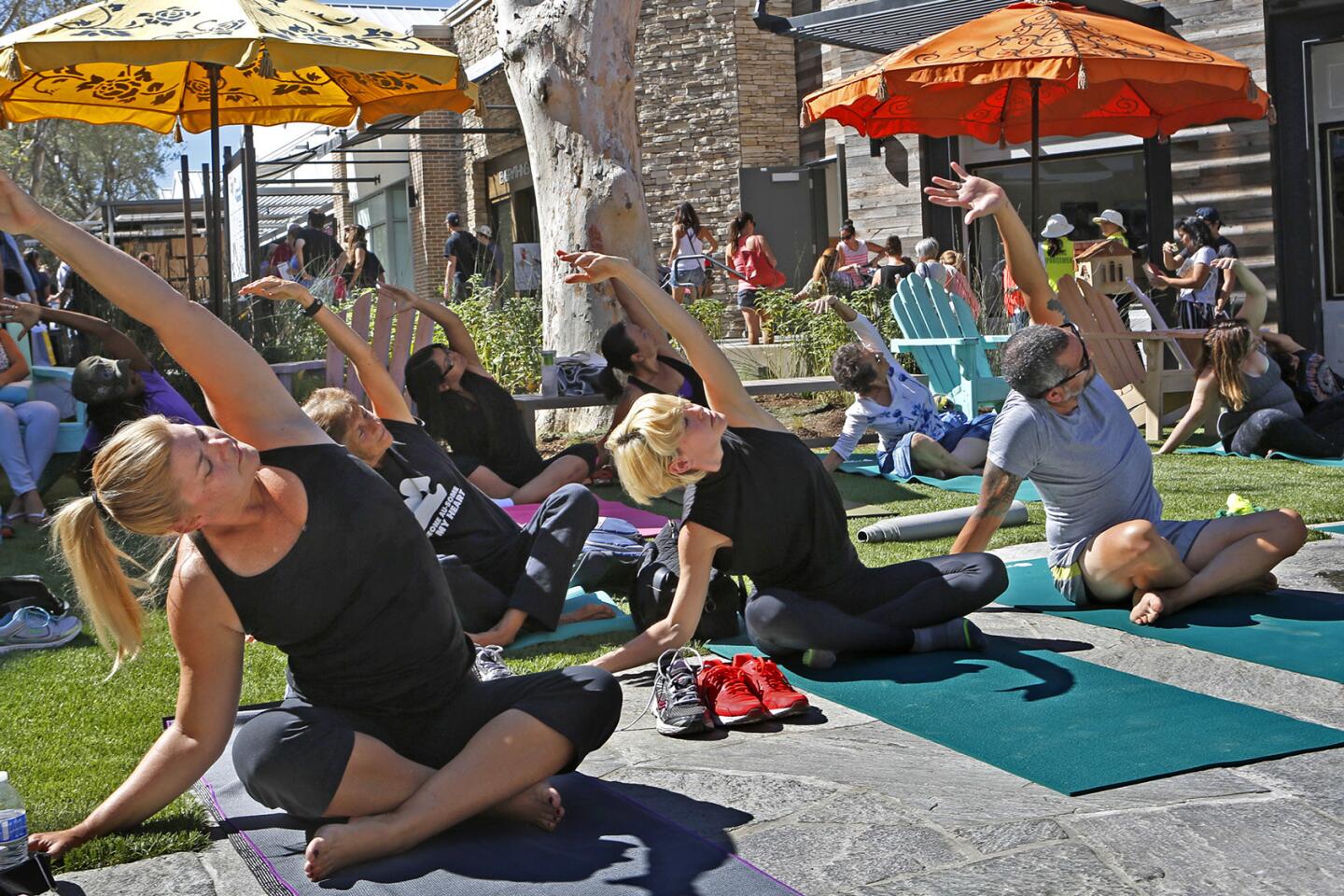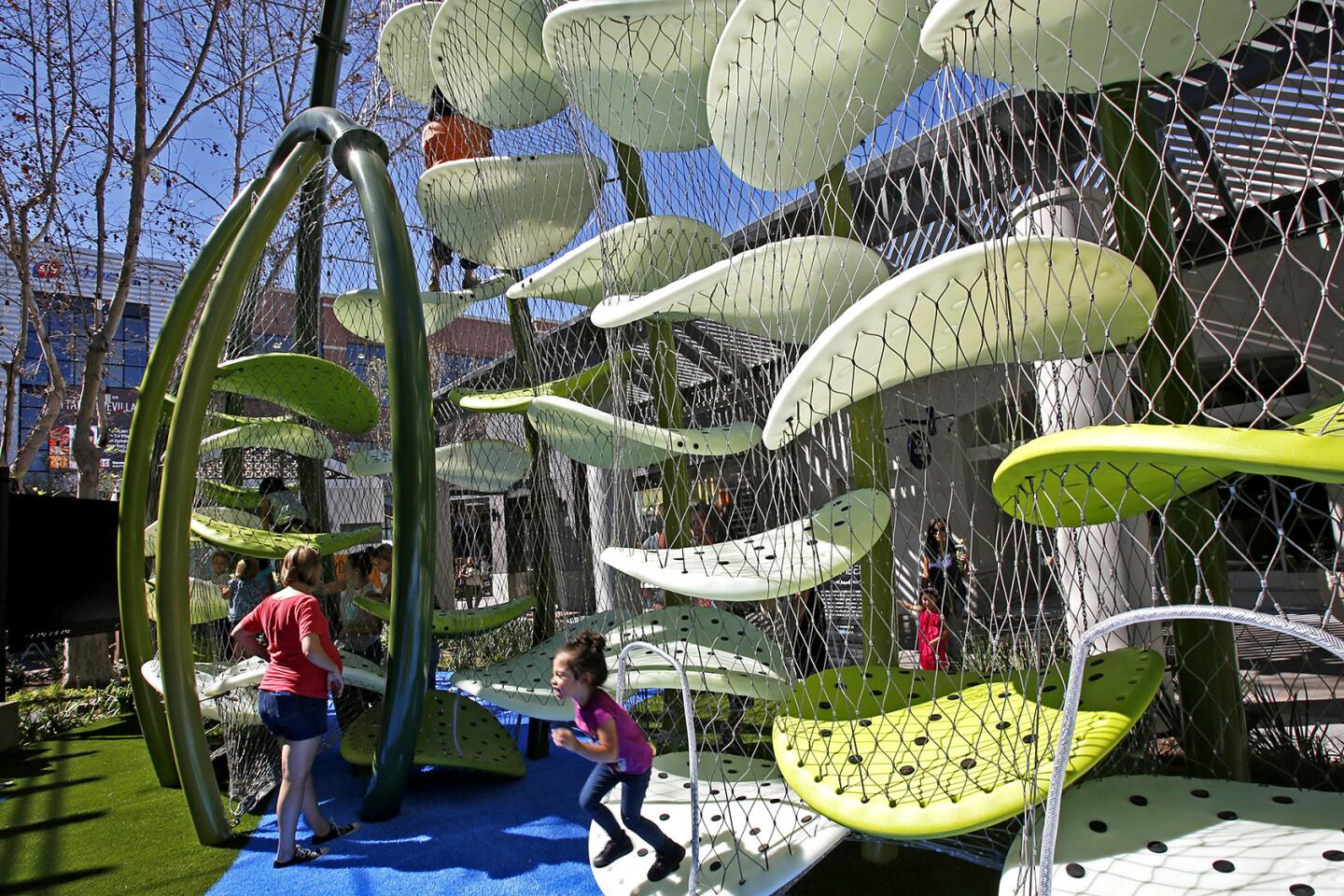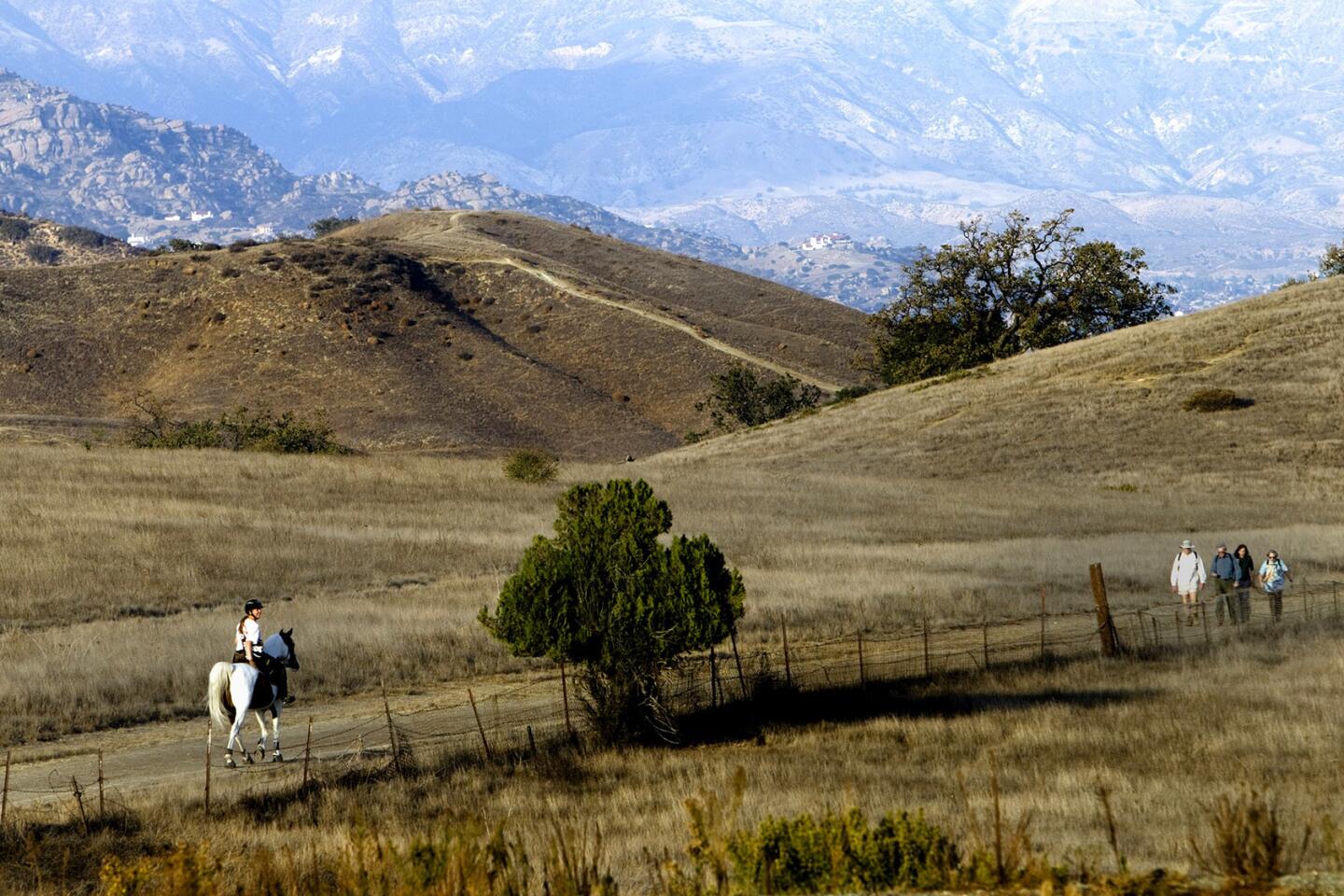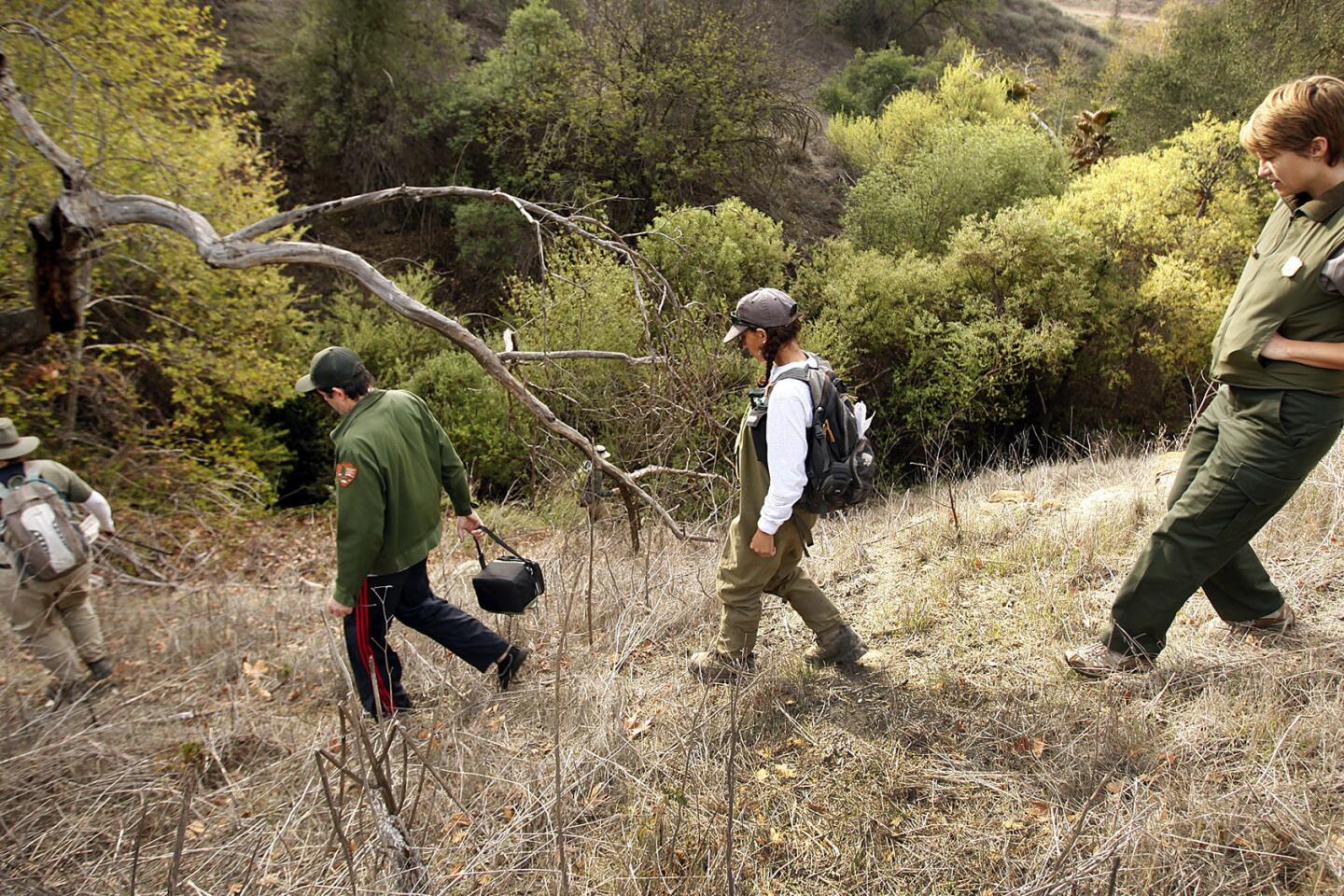Neighborhood Spotlight: Woodland Hills is a power-shopper’s mecca with outdoor delights
The development of the San Fernando Valley features more than its share of shady real estate speculators, above-the-law syndicates of the rich and powerful, and outright con men. But few of those rogues possessed the duplicity of the founder of the small hillside settlement that would eventually become the wealthy enclave of Woodland Hills.
His name was Victor Girard, and he came to Los Angeles in the late 1800s after making a fortune as a purveyor of Persian rugs of questionable authenticity.
By the early 1920s he had, like so many enterprising young men of the age, hung out his shingle as a real estate developer. He saw his big chance in the San Fernando Valley and bought nearly 3,000 acres of its hot, windy and altogether inhospitable southwestern corner.
Looking to maximize his profit, Girard subdivided that land into 6,000 postage stamp-sized lots — some as small as 25 feet wide — at a time when most parcels in the Valley were 40 acres at a minimum. On 100 of these lots, on winding country roads in the treeless hills, he built tiny rustic cabins, some of which still stand today.
Girard’s marketing plan for this settlement, which he naturally enough dubbed “Girard,” was broad in scope and extraordinarily dishonest. Citing its proximity to Topanga Canyon Road, he called Girard the closest town to the beach in the whole of the San Fernando Valley.
He also ran potential buyers up from the city on what he called “sucker buses” and convinced them that the town was thriving by taking them through a small Turkish-style Potemkin village, complete with a mosque tower, ornate gates and storefronts that were little more than studio flats dressed to look like open businesses.
Most egregiously, he is suspected of selling some of the lots multiple times, and when the scheme began to collapse around him, he surreptitiously attached liens to newly sold lots in a desperate bid to stave off bankruptcy.
Eventually the Great Depression brought an end to the town as a going concern, and Girard slunk off, leaving 75 resident families clinging to the dream he had sold them.
By 1945, he was all but forgotten. The community had nixed “Girard” in favor of “Woodland Hills,” a name inspired by the presence of more than 120,000 trees that he had planted to provide shade to his cottages.
Neighborhood highlights
Recreational activities: Take a swim at the Woodland Hills Recreation Center, play a round of golf at the Woodland Hills Country Club and hike at the Upper Las Virgenes Canyon Open Space Preserve.
Retail therapy: Or leave your sunscreen at home and hit Westfield Village, Woodland Hills’ newest shopping center, for some power shopping and artisanal coffee sipping.
Dine on the Boulevard: The Woodland Hills dining scene encompasses everything from pricey Warner Center steak joints to the mix of restaurants on Ventura Boulevard.
Neighborhood challenges
That commute, though: If you work in Warner Center and live in Woodland Hills, your commute couldn’t be easier. The drive to downtown L.A. or the Westside will shave years off your life.
The heat: It gets toasty in Woodland Hills.
Expert insight
Jodie Francisco, an agent with Dilbeck Estates, said real estate in Woodland Hills is more affordable than that of some of its neighbors.
“People who are being priced out of Encino and Sherman Oaks and still want good schools are getting a lot for their money,” she said. She also noted the neighborhood is “a good alternative to Laurel Canyon’s ’60s type of vibe.”
Currently, there are roughly 150 active listings for single-family homes in Woodland Hills ranging in price from about half a million dollars to just under $2.7 million, she said.
“Things on the market that are priced well are going in multiple offers, so you need to have someone who knows what they are doing,” Francisco said.
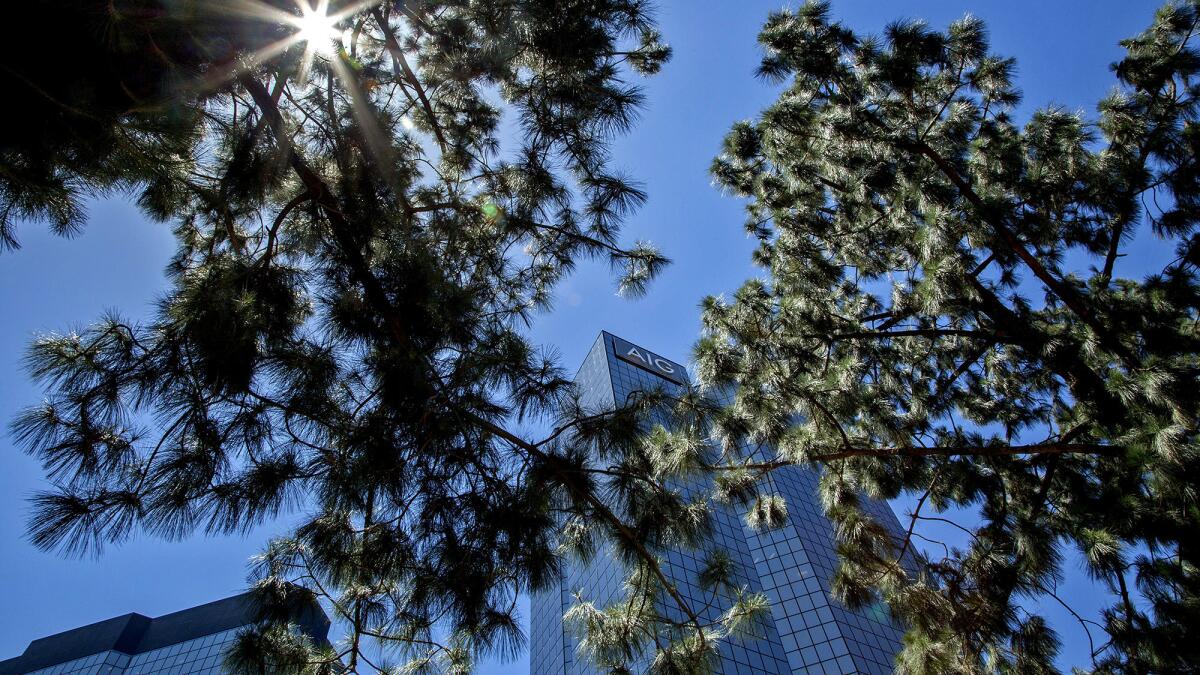
Market snapshot
Portions of the 91364 and 91367 ZIP Codes overlap the Woodland Hills area. In the 91364 ZIP Code, based on 27 sales, the median sales price for single-family homes in May was $815,000, according to CoreLogic. The median sales price in the 91367 Zip Code, based on 30 sales, was $839,000.
Report card
Within the boundaries of Woodland Hills is Woodland Hills Elementary, Calabash Street Elementary and Hart Street Elementary, which scored 967, 887 and 703 in the 2013 Academic Performance Index, respectively.
El Camino Real Charter High scored 835, and William Howard Taft Senior High scored 786.
Times staff writer Rachel Spacek contributed to this report.
MORE FROM HOT PROPERTY
‘SNL’ alum Kristen Wiig sells Los Feliz home for $2 million
Home security gets arty with nature-inspired gate and window designs
Dick Martin and Dolly Read’s longtime Malibu home lists for $9.4 million
More to Read
Sign up for Essential California
The most important California stories and recommendations in your inbox every morning.
You may occasionally receive promotional content from the Los Angeles Times.
